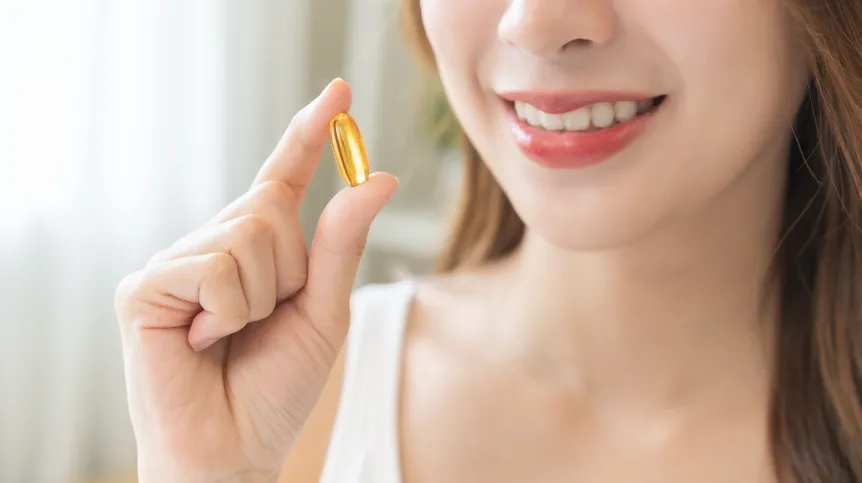
Researchers from the nutrigenomics team at the Institute of Animal Reproduction and Food Research of PAS in Olsztyn have developed a new idea for research to demonstrate the effectiveness of vitamin D supplementation. They propose to divide patients into three groups according to the degree of the body's response to vitamin D.
'Measuring vitamin D levels in the body alone is not an effective way to determine whether we have enough vitamin D. It is crucial to take into account the individual level of the body’s response to this vitamin by measuring the expression of specific genes. Only such an approach will give a reliable result as to whether vitamin D supplementation has the intended effect', emhasises Dr. Emilia Gospodarska of the Nutrigenomics team at the Institute of Animal Reproduction and Food Research of PAS in Olsztyn.
Emilia Gospodarska explains that current blood tests to determine the effectiveness of vitamin D supplementation are not well designed.
'These tests are designed along the lines of therapeutic drug tests, not for a nutritional compound such as vitamin D. Measuring the difference between a level of zero, that is, without administration of the drug, and then after a time when the drug has been taken, does not work for vitamin D. One reason for this is that, after all, everyone already has a certain level of this vitamin; it is never zero', says the researcher quoted in the press release.
She adds that people differ in their response to vitamin D. 'Our doubts have been confirmed by recent long-term studies (RCTs - randomised controlled trials) on a large scale (up to 25,000 participants) to evaluate the effectiveness of vitamin D supplementation in preventing the development of a number of diseases, including type 2 diabetes, cardiovascular disease or cancer, which did not provide any statistically significant results,’ Gospodarska says.
A team of nutrigenomics experts from Olsztyn (nutrigenomics is the study of the effect of nutrients on the expression of genes, including those responsible for health) proposes a paradigm shift.
The core of their idea is to move from measuring vitamin D levels alone to studying the body's response to the vitamin based on the expression levels of specific genes, which are markers, or determinants, of this action.
The scientists are currently looking for the best genes to study from a wide range of genes - potential markers. Bioinformatics experts are involved in the project.
A crucial aspect of this new approach is the division of the population into three groups, based on their level of response to vitamin D: high responders, medium responders and low responders.
'This classification was proposed by our team leader Professor Carsten Carlberg, based on his research on the Finnish and Saudi Arabian populations. Based on this classification, we know, for example, that people with a high vitamin D response (i.e. when the body is able to maximise the effects of vitamin D) will need less vitamin D than those with low response,’ Gospodarska says
She gives the following example: the standard established vitamin D dose for an adult is 2,000 units per day. However, it turns out that people in the low response group need more of it. How much exactly this will be determined on the basis of the tests the researcher are developing.
The research conducted by scientists from Olsztyn is basic research. However, Emilia Gospodarska believes that the solution has a potential for commercialisation.
Vitamin D affects the functioning of the entire body. Its most well-known action is maintaining adequate calcium levels in the body to maintain proper bone structure. Vitamin D is also important for 'training’ our immune system to work effectively in the case of microbial infections and not overreact in the case of possible autoimmune reactions.
The paper describing the research of Olsztyn scientists was published in the journal Nutrients. (PAP)
PAP - Science in Poland, Agnieszka Libudzka
ali/ bar/ kap/
tr. RL













